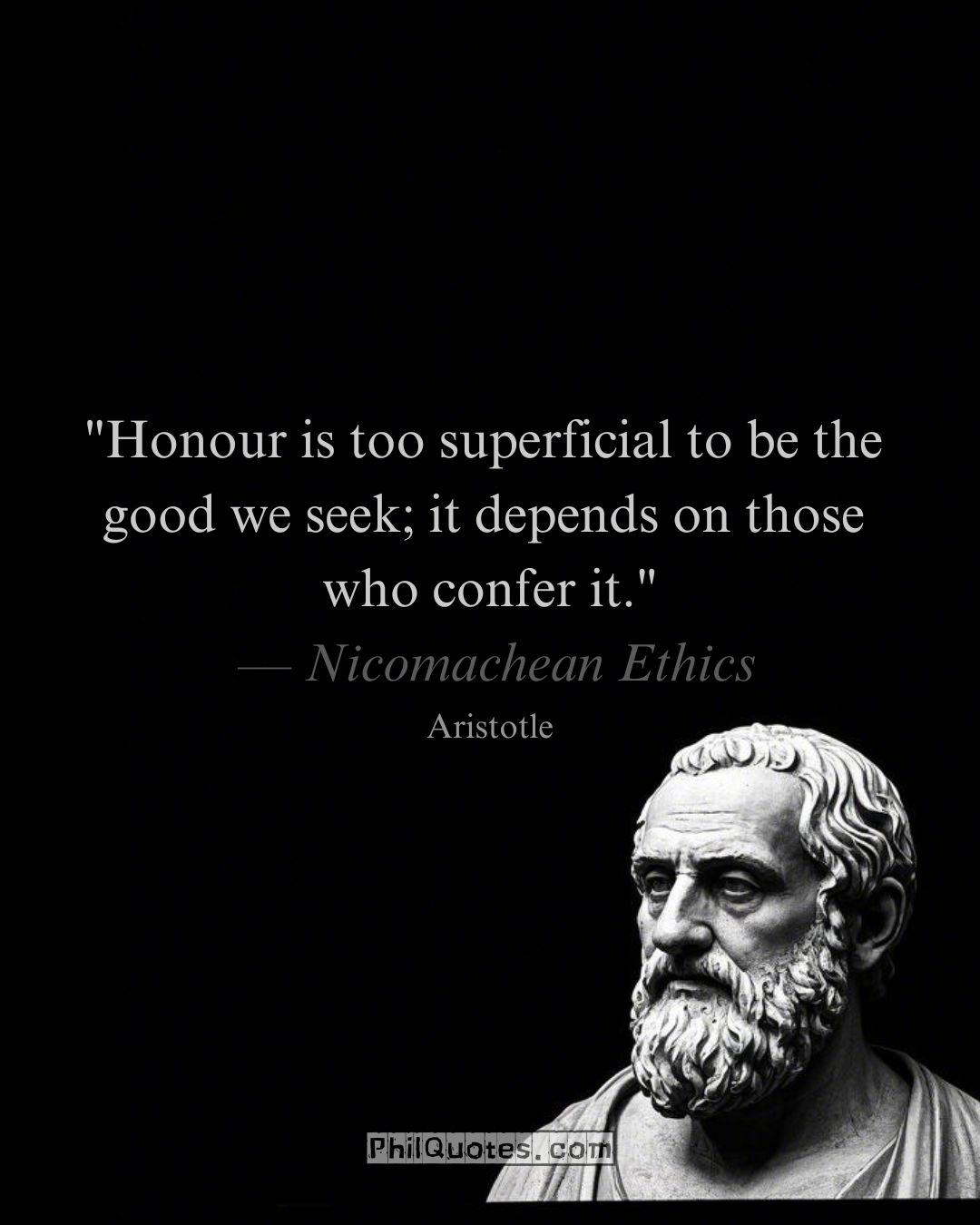
“Honour is too superficial to be the good we seek; it depends on those who confer it.”
— Aristotle, Nicomachean Ethics, Book I, Chapter 5
Simple Explanation:
Aristotle argues that honour (praise, awards, social status) is an unstable, superficial good because its value hinges on others’ opinions. True human flourishing (eudaimonia) must be self-sufficient — rooted in virtuous actions and rational integrity, not external validation.
Real-World Connection:
① Chasing Social Media Fame →
You post viral content (action) → gain followers (superficial honour) → feel empty without likes (dependency trap) → miss inner growth (self-sufficient good).
② Volunteering Anonymously →
You serve meals at a shelter (action) → receive no recognition (no honour) → cultivate compassion (intrinsic virtue) → experience quiet fulfillment (authentic good).
③ The Hidden Truth →
Aristotle’s “good” is a self-lit flame — honour is merely a flickering shadow. Eudaimonia shines brightest when fueled by courage, wisdom, and justice, not applause.